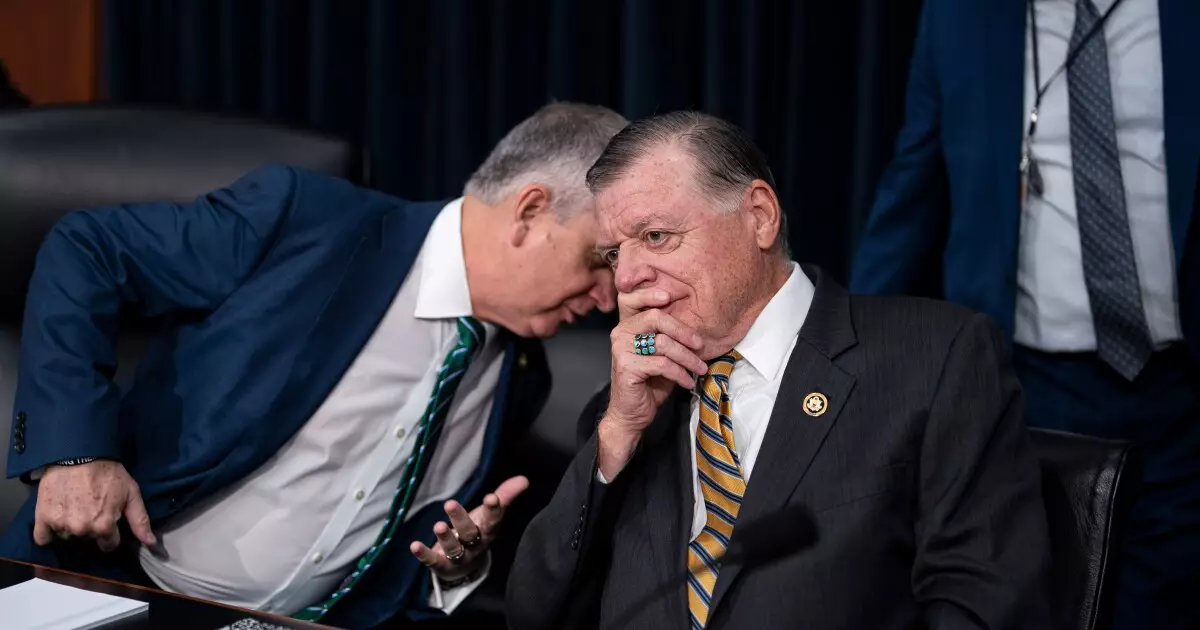Impending Legislative Decisions: Challenges Ahead for Congress

As the 118th Congress approaches its conclusion, lawmakers are preparing to return to Capitol Hill for a significant lame-duck session. This period, expected to wrap up on December 20, bears great importance due to the pressing need for government funding, national defense authorization, and potential disaster relief measures. These critical issues, however, overshadow more specific municipal market priorities that are seen as unlikely to be adequately addressed amidst the overwhelming pressure of must-pass legislation.
Brett Bolton, vice president of federal legislative and regulatory policy for the Bond Dealers of America, has pointed out that the primary focus will be on expediting essential funding and authorization bills rather than engaging with more nuanced fiscal policies. Lawmakers are under a tight deadline to extend the current government funding continuing resolution, which is set to expire on December 20, to prevent a partial government shutdown. Given the uncertainties surrounding the next funding bill, especially with the absence of a consensus on a top-line spending figure, the path forward remains fraught with complexity.
House Speaker Mike Johnson, representing Louisiana, is advocating for a short-term continuing resolution that could stretch into February or March 2025. This proposed delay would grant incoming President Donald Trump the opportunity to mold the federal budget according to his administration’s objectives. Russell Vought, anticipated to be Trump’s choice for the budget office, has similarly called for postponing a final budget agreement until the new leadership assumes office.
The urgency here lays bare a crucial deadline—lawmakers must finalize the full fiscal budget by April to avoid automatic sequestration cuts, which would threaten essential governmental services and programs. While the immediate focus is on fulfilling interim obligations, legislative priorities could dramatically shift once the new administration is installed.
Among the impending legislative actions, Congress must also consider the national defense authorization act (NDAA), a bipartisan commitment upheld annually for over six decades. Despite speculation, this year’s NDAA is not anticipated to include substantial changes or new mandates, unlike previous iterations that transformed municipal bond issuance regulations. The text of the NDAA is expected to be disclosed soon, with lawmakers eager to advance its passage concurrently with other funding measures.
Simultaneously, there is a concerted effort among legislators to incorporate disaster relief funding into the stop-gap bill. During a Senate Appropriations Committee hearing in November, bipartisan agreement on strong disaster funding emerged, indicating that this issue could receive some attention before Congress adjourns for the year.
As the Republican majority prepares to usher in an aggressive legislative agenda following Trump’s inauguration, Sen. Jodi Ernst from Iowa exemplifies the party’s commitment tolarge-scale fiscal reform. Ernst is proposing upwards of $2 trillion worth of spending cuts targeting programs she categorizes as inefficient or unnecessary, particularly within the framework of infrastructure investments.
Prominent on Ernst’s list of proposed cuts is a $7.5 billion initiative aimed at creating an expansive network of electric vehicle charging stations, alongside the $42 billion broadband expansion program. The senator criticized the limited progress in these areas, citing that only 17 EV stations have been completed and no individuals have been connected to broadband through the federal efforts thus far. She has similarly flagged California’s high-speed rail project along with its affiliates, arguing that these investments mismanage taxpayer funds.
In sum, as Congress braces for a crucial final session, significant legislative decisions loom on the horizon, encompassing government funding, national defense, and potential disaster aid. The partisan landscape is set to shift as lawmakers address immediate needs while also laying the groundwork for future governance—hinting at challenges and changes to come. The financial ambitions articulated by some Republican leaders signal a fundamental rethinking of infrastructure investments and a prioritization of fiscal responsibility that will shape ongoing national discourse. As this legislative session concludes, the implications of these decisions will resonate far beyond the halls of Congress, influencing policy direction and budgetary considerations for years to come.





